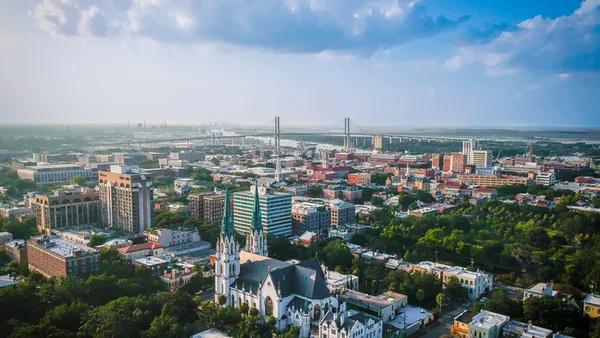Dive Brief:
- The FIFA Club World Cup, which kicked off last Monday, is resulting in hotel occupancy gains for some of the tournament’s 11 host markets, but not all, according to data from STR published last week.
- The tournament — seen as a precursor to the World Cup, which will see several matches played in U.S. cities next year — will hold matches in Atlanta; Charlotte, North Carolina; Cincinnati; Los Angeles; Miami; Nashville, Tennessee; New York City; Orlando, Florida; Philadelphia; Seattle; and Washington, D.C.
- Undersold hotel rooms surrounding the tournament’s later-stage matches are to be expected, given that the teams playing for those games have yet to be announced. But the event’s uneven impact on its host cities’ hotel markets could also be a result of broader recent trends toward more last-minute booking, as well as headwinds impacting U.S. travel more broadly, per STR.
Dive Insight:
The FIFA Club World Cup will result in hotel occupancy gains, but those gains aren’t consistent across markets or even across matches within the same market, according to STR’s Forward STAR data.
Charlotte, Philadelphia and Miami, however, show “more consistent” occupancy gains across matches, per STR. Philadelphia is seeing the highest percentage of occupancy growth during the tournament’s group stage, up 13.2% year on year. Charlotte and Miami trail, with occupancy growth of 8% and 5.7% year on year, respectively.
Meanwhile, thousands of tickets are still unsold for a majority of FIFA Club World Cup games, which STR called “not exactly surprising” given that teams have not yet had the chance to advance, and travelers have been preferring more last-minute booking windows in recent months.
The tournament, however, which draws teams from across the world, could be impacted by a recent dip in international arrivals to the U.S. — one of a handful of “broader headwinds that could be adversely impacting future bookings,” per STR.
FIFA officials attributed unsold tickets partially to fan concerns about their visa status, the New York Times reported earlier this month.
Domestically, headwinds impacting travel for the tournament include increased economic uncertainty and reduced “splurge travel,” according to STR.
Next summer’s World Cup should result in “significant demand lifts,” per STR, but those will be balanced by markets’ room supply and events’ accessibility to nearby markets. Analyzing data from previous World Cups, STR projects that corporate sponsors and wealthy fans will lift room rates, resulting in ADR premiums in World Cup host cities growing between 5% and 25%.
Sports travel accounts for 10% of tourism spending globally, and the sector is slated to grow 17.5% between 2023 and 2030, according to UN Tourism.










